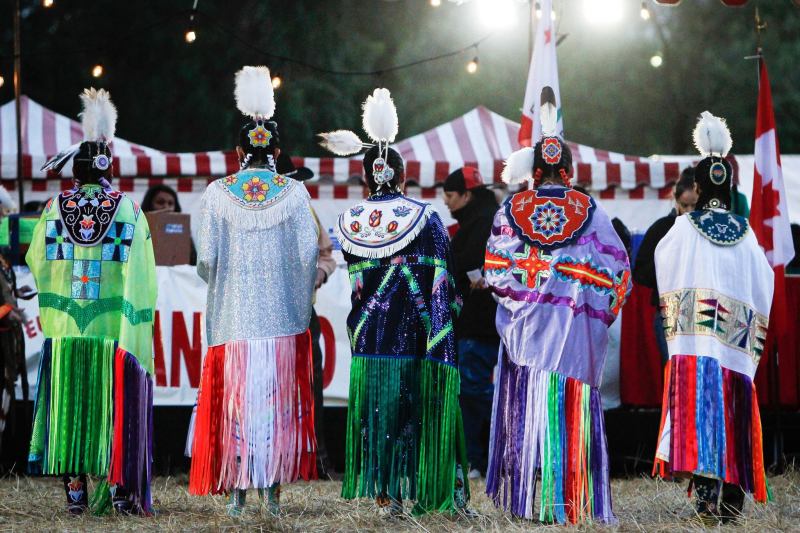This week, a mass email from “Native Lands” appeared in the inbox of Stanford freshmen. The email is a long form letter and reminds students that they currently live on Native land and did so in their United States hometown as well. The letter intones that “by virtue of living on an indigenous people’s homelands, you are factually a part of the settler-colonial dynamic in North America. This doesn’t mean that you were personally responsible for the past, but it does mean that you are part of this present and will play a part in the future on this continent.” It closes by suggesting on-campus resources students can use to learn more about North American “indigenous realities.”
The letter was composed by group of indigenous students and was sent out with help from Students for the Liberation of All Peoples, and I was personally unaware of the letter until I received it. However, the letter reminded me of the land acknowledgments that have become more common at Stanford and beyond. During my Admit Weekend, Dean of Admissions Richard Shaw acknowledged that we were present on the land of the Ohlone people. University President Marc Tessier-Lavigne gave a similar acknowledgement during the renaming celebration of the Sally Ride dorm. As I am a Native American person, I have begun to wonder: Are these acknowledgments meaningful, or are they token gestures which have no effect on Native American peoples?
Land acknowledgments are a reminder that all of us — including Native Americans who have relocated from their home territory — benefit from the injustices tied to this land. Because this injustice constantly pervades our existence, it can be easy to forget about. We only have an occasional reminder when a newsworthy event, such as the Dakota Access Pipeline, enters the collective consciousness. Land acknowledgements are a way for us to always remember the people whose land we are on.
There is a basic importance to remembering the story of the land, just as it is important to know the story of the Founding Fathers of the United States and the principles this country was founded on. Although it may be a passive part of our lives, the past is an essential part of our present experience. It is the role of an educated person to know the causes and conditions of their present reality.
It would be disingenuous to only remember the people whose land we reside on and stop there. Everyone — Natives and non-Natives — must act on their knowledge of injustice. First, we must be educated on what these injustices are and how they continue today. Land was co-opted from Native Americans through acts of extortion. The acts related to this seizure and attempted elimination of Native peoples had severe effects which continue today. Dislocation from traditional homelands, systemic poverty on reservations, a higher risk for mental disorders — these are all issues facing the Native community which stem from past injustice.
After learning about the history of the land, the effects of that history and the community living out those effects, we should turn that knowledge into action. What action each of us can take depends on the means available to us, so we must reflect on this question for ourselves.
One thing we all have in common at Stanford is that we are all residents of the United States, and we all have some say in the policies of our local, state and federal governments. We should support fair policies which benefit tribes, such as policies which restore lost treaty rights or expedite the recognition of tribes who are seeking acknowledgment from the federal government. We should support politicians who understand issues facing Indian Country and laud politicians for policies aimed at curbing these issues. For all his alarming name-calling of Elizabeth Warren and reduction of national monuments, President Trump’s administration has also passed some beneficial policy for Indian Country, including the creation of Opportunity Zones in the 2017 tax reform bill. These actions deserve more recognition.
When we are faced with contentious issues which include Native Americans, we must remember the Native American perspective. The Sioux tribes gained support for the opposal of the Dakota Access Pipeline largely because opposition to the pipeline was sympathetic to environmental causes. However, when my tribe, the Makah Tribe, attempted to exercise their treaty rights in the late ’90s and hunt gray whales, the public overwhelmingly opposed them, perhaps because it was seen as an anti-environmental act. It isn’t necessary to always agree with Native American causes, but it’s important to take their perspective into account.
“We are on Native land” is a call to remember. “We are on Native land” is a call to act on memory. “We are on Native land” is a call to consider indigenous perspectives. I don’t know how often it should be said or on what occasions, but, for all these reasons, acknowledging our presence on Native land serves a necessary purpose.
Contact Ravi Smith at ravi22 ‘at’ stanford.edu.
